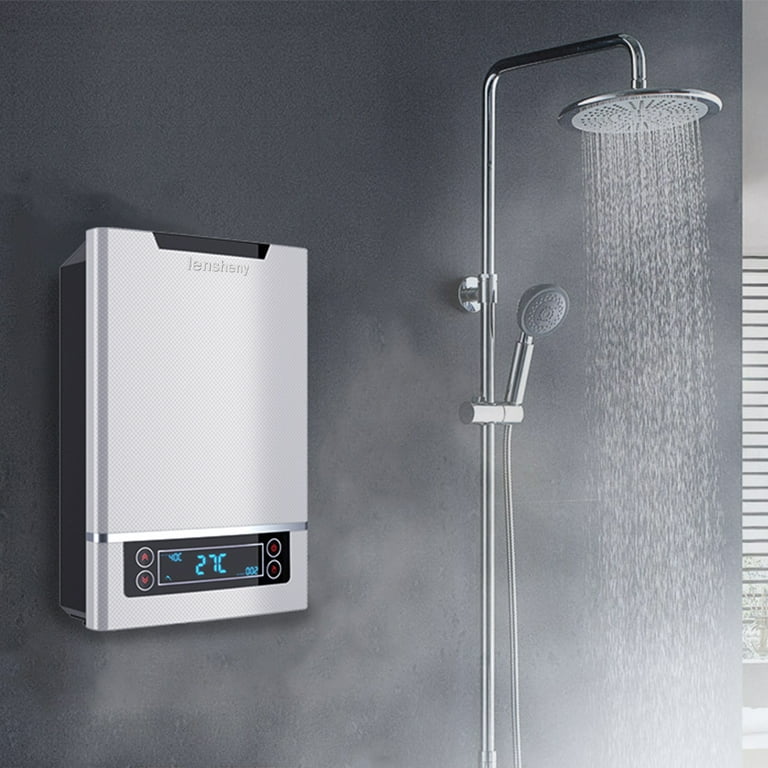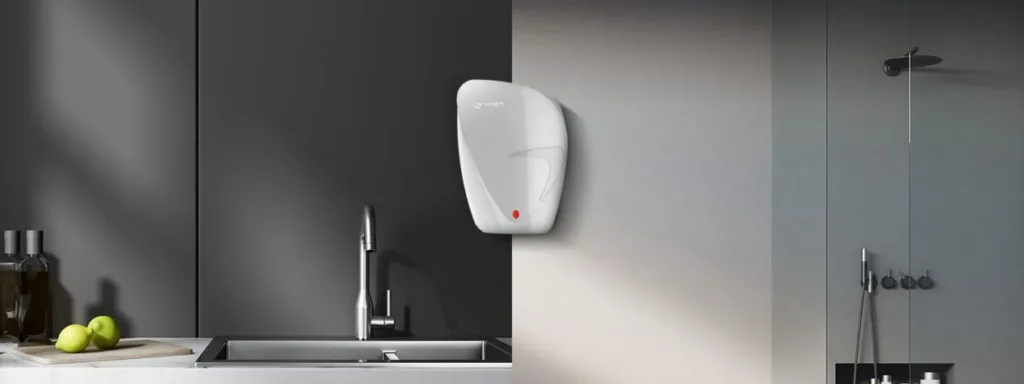In the quest for hot water that is readily available and energy-efficient, many homeowners are turning to instant water heaters, also known as tankless water heaters. These innovative devices have gained popularity due to their ability to provide hot water on demand while saving energy and space. In this blog post, we will explore the pros and cons of instant water heaters, helping you make an informed decision for your home.
What are Instant Water Heaters?
Instant water heaters, or tankless water heaters, are a modern alternative to traditional water heaters that store and heat a large volume of water. Unlike their bulky counterparts, instant water heaters heat water only when needed, eliminating the need for a storage tank. This not only saves space but also offers several benefits.
The Pros of Instant Water Heaters
- Energy Efficiency: Instant water heaters are incredibly energy-efficient. They eliminate the standby heat loss associated with traditional water heaters by heating water only when required. According to Champion Plumbing, homeowners can save up to 50% more energy costs by switching to a tankless water heater.
- Endless Hot Water Supply: With instant water heaters, you’ll always have hot water. These systems provide a continuous hot water supply, ensuring that your family has hot water whenever you need it.
- Space-Saving Design: Tankless water heaters are compact and wall-mounted, freeing up valuable space in your utility room or basement.
The Cons of Instant Water Heaters
- Higher Initial Cost: Instant water heaters typically cost more upfront than traditional water heaters. However, it’s essential to consider the long-term savings in energy costs and the increased lifespan of tankless water heaters.
- Limited Flow Rate: Although tankless water heaters can provide a continuous hot water supply, they have a fixed flow rate. Depending on the size of the unit, simultaneous use of multiple hot water fixtures may be challenging.
- Installation Complexity: Installing an instant water heater may require modifications to your plumbing system. You should consult a professional plumber, such as Champion Plumbing, for proper installation and to ensure compliance with local building codes.
Is It Time to Replace Your Water Heater: Signs You Need to Replace It
If you’re wondering whether it’s time to replace your water heater, it’s important to be aware of the signs that indicate it may be necessary. Ignoring these signs can lead to inconvenient breakdowns, costly repairs, and potential safety hazards. Here are some key indicators that it’s time to replace your water heater:
- Age: The average lifespan of a water heater is around 8 to 12 years. If your unit is approaching or exceeding this range, it’s wise to consider a replacement. Older models tend to become less efficient and more prone to malfunctioning.
- Rusty or Discolored Water: If you notice rusty or discolored water coming out of your faucets, it could mean that your water heater’s interior tank is rusting. Rust is a clear sign that it’s time for a new unit, as the corrosion can lead to leaks and further damage.
- Inconsistent Water Temperature: If your water heater struggles to provide consistent hot water, it may indicate internal issues. This could range from a faulty thermostat to sediment buildup in the tank. Replacing the unit will ensure a reliable and consistent supply of hot water.
- Strange Noises: Unusual rumbling, popping, or banging sounds from your water heater may indicate sediment buildup. Over time, this sediment can cause damage to the tank and reduce the unit’s efficiency. If flushing the tank doesn’t resolve the issue, replacing the water heater is best.
- Leaks: You shouldn’t ignore any visible leaks around your water heater. Small leaks can quickly become significant problems, causing water damage and mold growth. If you notice water pooling around the unit or any signs of leakage, it’s time for a replacement.
- High Energy Bills: Your water heater may be the culprit if your energy bills have consistently increased without a plausible explanation. As water heaters age, they become less energy-efficient, resulting in higher utility costs. Upgrading to a newer, more efficient model can help you save on energy expenses.
- Frequent Repairs: If you find yourself frequently calling for water heater repairs, investing in a new unit may be more cost-effective in the long run. The constant maintenance can add up, and the inconvenience of breakdowns can disrupt your daily routine.
Remember, these signs are not definitive proof that you need a replacement, but they should indicate that it’s time to consult a professional. A qualified technician can assess the condition of your water heater and provide expert advice on whether it’s time for a replacement.

Are Instant Water Heaters More Advanced?
Tankless water heaters are indeed more advanced than traditional water heaters. Unlike conventional water heaters that constantly heat and store water in a tank, instant water heaters only heat water on-demand, providing hot water instantly whenever needed. This eliminates the need for a bulky storage tank, saves energy, and reduces utility bills.
Additionally, instant water heaters are more compact, making them suitable for small spaces. Their advanced technology ensures a continuous hot water supply, making them a convenient and efficient choice for modern homes.
Will Instant Water Heaters Take the Place of Your Traditional Water Heater?
Instant water heaters have gained popularity recently due to their energy efficiency and convenience. Unlike traditional water heaters that store and heat a large amount of water, instant water heaters heat water on demand, providing hot water whenever needed. This eliminates the need for a large storage tank, saving space and reducing energy wastage.
While instant water heaters can provide continuous hot water, they may not suit households with high hot water demands. Traditional water heaters are still a reliable choice for such households.
Is an Instant Water Heater Right for You?
The decision to switch to an instant water heater depends on your household’s hot water usage, budget, and space constraints. If you value energy efficiency and on-demand hot water and have a budget, instant water heaters are an excellent choice. However, a traditional water heater may be more suitable if you have a large household with high simultaneous hot water demands.
Final Thoughts
Instant water heaters offer numerous benefits, including energy efficiency, endless hot water supply, and space-saving design. While they may have a higher initial cost and limited flow rate, their long-term savings and convenience make them an attractive option for many homeowners. If you’re considering water heater repair or switching to an instant water heater, consult a professional plumber like Champion Plumbing to determine the best solution for your home’s hot water needs.
Enjoy the luxury of hot water on demand with an instant water heater.






